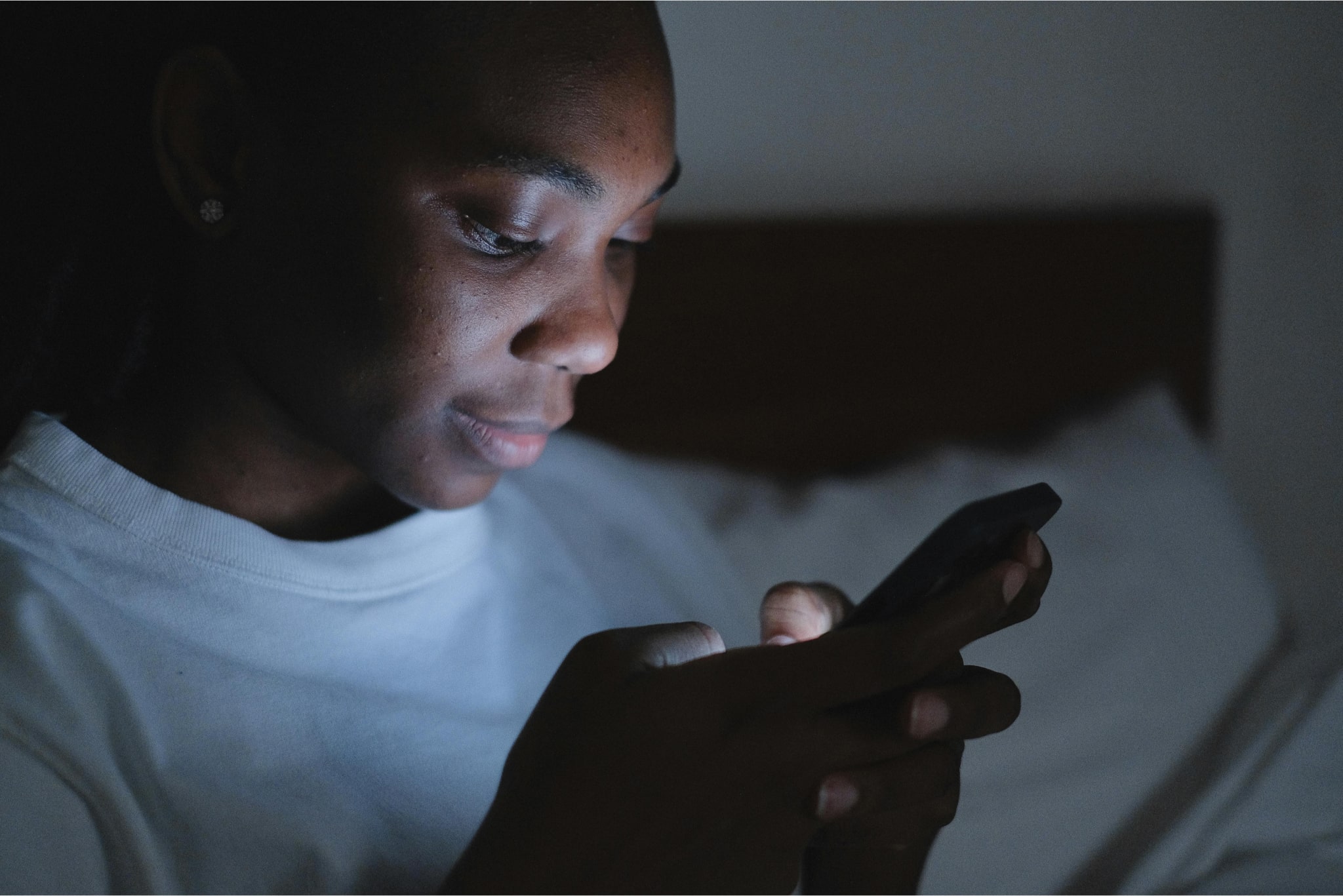Pretty much everyone uses a smartphone, tablet, or computer these days, so we’re all exposed to screens, albeit to varying degrees. While it’s common knowledge that prolonged exposure to screens can be harmful, how does this affect the skin?
This article discusses what blue light does to your skin and how it affects your eyes. So, if you’ve been experiencing skin or eye issues, read on as your screentime may just be culprit.
Does Blue Light from Screens Affect Your Skin?
Before answering this question, what is blue light? Blue light is the highest energy color amongst all the colors that make up visible light.
So, does it affect your skin? Yes, blue light from screens affect your skin. It has marked effects on the body, including the eyes and skin.
Do Screens Age Your Skin?
Yes, screens can age your skin. When exposed to screens, you’re exposed to blue light, which
can dry out your skin, leaving you prone to faster skin aging.
How Does Blue Light Affect Your Skin?
Blue light affects your skin, causing hyperpigmentation, sleep pattern disruption, skin aging, amongst others. Let’s explore how blue light may trigger these effects:
1. Hyperpigmentation
Continued exposure to blue light may stimulate the overproduction of melanin, causing hyperpigmentation, uneven skin tone, swelling, and redness.
2. Moisture Disruption
When overexposed to blue light, your skin may lose moisture. Consequently, you’ll experience flakiness or elevated sebum production as the skin tries to compensate. However, increased sebum will cause further concerns like clogged pores or breakouts.
3. Premature Aging
Studies indicate that blue light contributes to aging through free radical damage and oxidative stress. How? Well, blue light is linked to reactive oxygen species and nitric oxide – two substances that increase oxidative stress and can cause free radical damage.
Also, blue light dries out the skin, causing wrinkles and flaking, which also contribute to aging.
4. Disrupted Sleep Pattern
Exposure to blue light, especially at night, can suppress or delay the release of melatonin. This, in turn, causes sleep pattern disruptions and reduced sleep quality. So, how does a disrupted sleep pattern affect your skin? Well, if you’re not getting enough sleep, your skin may get discolored, dry, and wrinkled.
How Does Blue Light Affect Your Eyes?
Unlike the other colors of the visible light spectrum, the eyes cannot shut out blue light. Hence, they are highly susceptible to damage from blue light following prolonged exposure. Blue light can affect your eyes, causing blurred vision, dry or stinging eyes, excessive tearing, and headaches. With continued exposure, it can lead to long-term damage to the retina and photoreceptors, causing conditions such as macular degeneration, cataracts, glaucoma, and so on.
How to Minimize the Effects of Blue Light on Your Eyes
To minimize the adverse effects of screen exposure on your eyes, do the following:
- Take a break every 20 minutes by looking at something 20 feet away for 20 seconds.
When looking away, look at something that does not emit blue light. - Blink often.
- Invest in over-the-counter (OTC) lubricating eye drops if you need extra moisture and comfort for dry eyes.
- Use blue light glasses as they may help reduce the intensity of light getting to your eyes.
How to Minimize the Effects of Blue Light on Your Skin
You can minimize the negative impacts of blue light on your skin by doing the following:
1. Sunscreen
You can block out blue light from the sun and screens by using a sunscreen. The best sunscreens for protection against blue light are SPF 30 and above. They’ll contain ingredients like zinc oxide, iron oxide, or titanium oxide, which can block blue light.
When trying to block out blue light, physical sunscreens (which repel light) are better than chemical sunscreens (which absorb light). Why? Well, light absorption may lead to the production of free radicals, which can cause the damage you’re trying to prevent.
Not all sunscreens offer protection against blue light, so when getting one pay attention to the coverage and the ingredients.
2. Limit Screen Time
One of the easiest and cheapest ways to minimize the effects of blue light on your skin is to limit screentime. Take breaks as often as possible and avoid using screens when not necessary.
3. Reduce Brightness
Reducing your screens brightness will reduce the intensity of the light that gets to you minimizing the harm. To achieve this, you can adjust brightness on your device, enable night mode, or use a blue light screen protector.
4. Maintain a Safe Distance from Devices
By placing your devices some distance away from you, you make room for some of the blue light to disperse, reducing how much light gets to you. Here are some recommendations for safe distances between you and your devices:
- Hold your phones 6 cm away from your face
- Put your laptops as far back as comfortable
- Stay at least 5 feet away from your TV
5. Antioxidants
Invest in antioxidants such as vitamin E and vitamin C for your skin as they can help fight the free radicals produced from overexposure to blue light.
6. Avoid Screens Before Bedtime
Refrain from screen use at least 30 minutes before sleep to prevent disruptions to your sleep pattern. This helps improve sleep quality and overall well-being.
Final Thoughts
Exposure to screens can affect your eyes and skin in many ways, including headache, dry eyes, dry skin, hyperpigmentation, blurred vision, and so on. However, you can reduce those effects by ensuring moderation through reduced screen brightness and reduced screentime.


